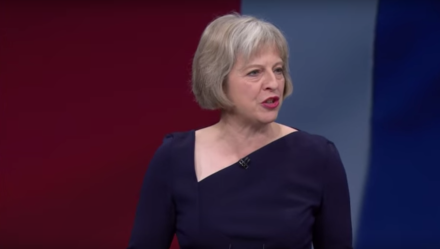
At this week’s Prime Minister’s Questions, Theresa May tried to reassure the country that her Government has been working hard over the summer.
But as the new Shadow Justice Secretary, throughout Parliament’s summer break I’ve been concerned to see problems mounting in the justice system: a crisis in our prisons; a fragmented probation service; the necessity for new campaigns in defence of access to justice; and renewed concerns about the Government’s approach to human rights.
At Justice Questions this week, these problems and more were raised and yet the new Justice Secretary offered no new solutions. She then had a second opportunity to set out her views when she appeared at this week’s Justice Committee but there was little of real substance added.
Prison reform was the first of Liz Truss’ stated priorities – to which she added improving the justice system so it works for all and enacting a “British Bill of Rights”.
Bob Neill MP – the Chair of the Justice Committee – wasn’t the only one looking surprised when, asked about the future of the Government’s much trumpeted Prison and Courts Reform Bill, the Justice Secretary’s response was a rather vague reference to laying out plans at some point soon.
It was a stark contrast to back in July, when she stated: “I am clear that the vital work of prison reform will continue at pace”. That followed the release of the annual report by Her Majesty’s Inspectorate of Prisons, which detailed the full extent of the spiralling crisis in our prison system. The Inspector Peter Clarke wrote that prisons “have become unacceptably violent and dangerous places” and he found that self-harm and self-inflicted deaths had each risen by a quarter.
I am concerned that uncertainty now surrounds Government’s commitment to prison reform but also that the early briefings from her predecessor made no commitment to addressing the staffing crisis in prisons. It is imperative that the plans to which she repeatedly referred are laid out in full sooner rather than later.
On access to justice – which is one of my main concerns as Shadow Justice Secretary – the Justice Secretary repeatedly failed to address the committee’s concerns. She was questioned about the precipitous drop in civil legal aid cases since 2012 but had no meaningful response. When asked when the effect of previous cuts would be reviewed she gave no date. When asked whether, as a point of principle, she agreed with court fees being charged in order to raise revenue, she offered no opinion. I would have hoped that the Justice Secretary would have been mindful of the Justice Committee’s damning report released before the Summer, in which the committee recommended that employment tribunal fees should – at the very least – be reduced. Labour has now committed – no ifs, no buts – to scrapping employment tribunal fees.
On human rights, the Secretary of State would not explain how scrapping the Human Rights Act squares with the Prime Minister’s ruling out of withdrawing from the European Convention on Human Rights. She claimed the question was asking her to comment on proposals which weren’t yet finalised. Yet surely the Government’s reason for scrapping the Human Rights Act (HRA) is the starting point for the Government’s proposals? The Justice Secretary’s assertion how the as-yet-unwritten Bill of Rights will protect people in a better way than the HRA has been left unexplained.
The political reality is that the HRA is a lightning conductor for the hard-right of the Conservative Party. Scrapping it is about internal Conservative Party games. It was a Labour Government that introduced the act and incorporated Convention rights in order to “bring rights home” for the people of Britain. We cannot stand by whilst Liz Truss threatens to take Britain backwards.
Following the Secretary of State’s appearance at the committee, I’m more concerned than ever that the Conservatives are failing to provide a credible plan to reduce record levels of violence, deaths, and overcrowding in our prisons. The promised Prison and Courts Reform Bill – the centrepiece of this year’s Queen’s Speech – now seems in doubt. Access to justice was severely diminished under the coalition and Jeremy Corbyn was right to set up the Bach Commission into Access to Justice to help Labour repair the damage. I look forward to discussing these issues and the Commission’s initial findings at party conference and beyond. In the meantime, we will continue to hold the Conservative Government to account, defend both your hard-won rights and access to justice for all.




More from LabourList
Labour place third in Gorton and Denton by-election as Greens gain seat
‘What Batley and Spen taught me about standing up to divisive politics’
‘Security in the 21st century means more than just defence’